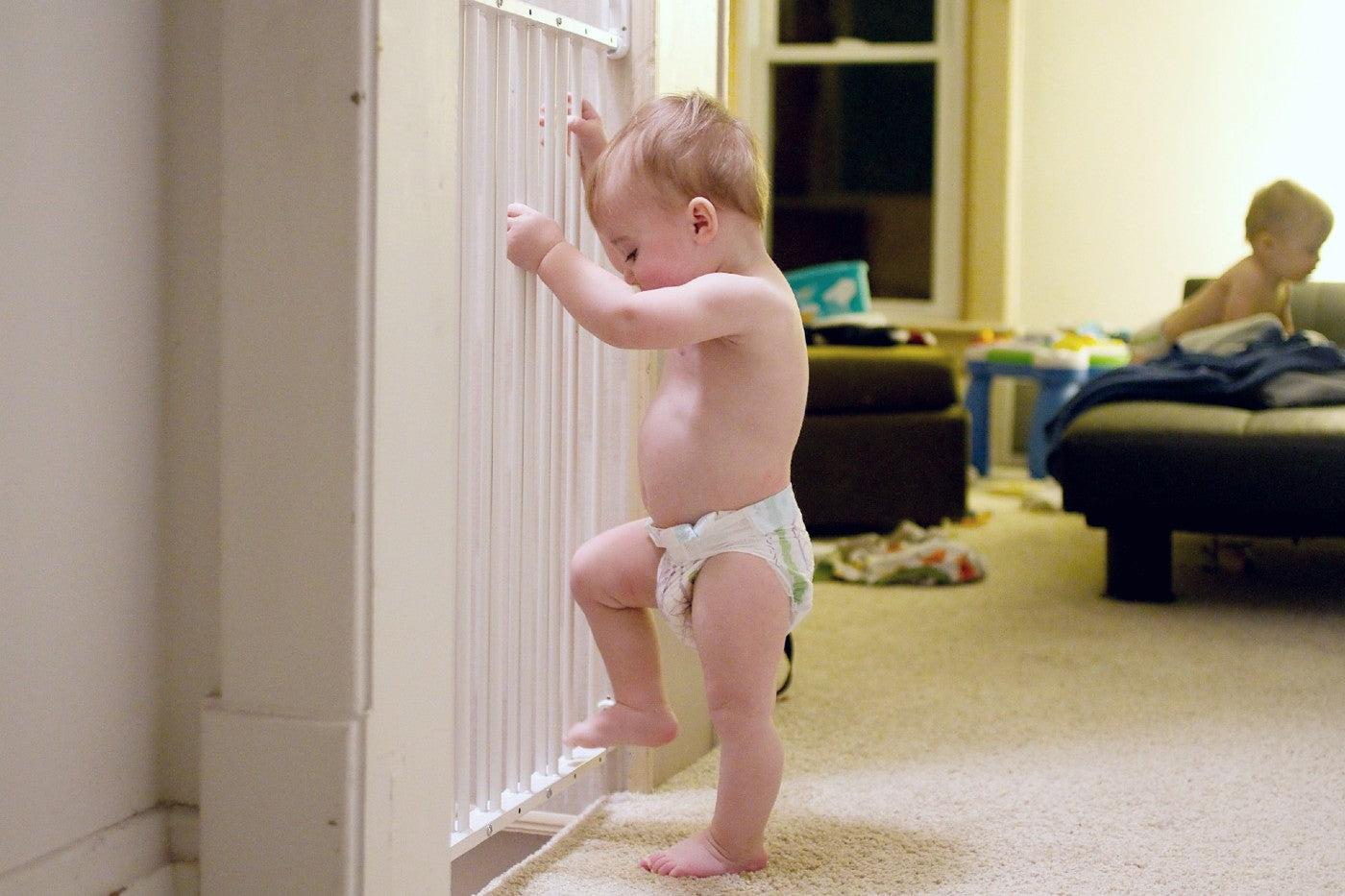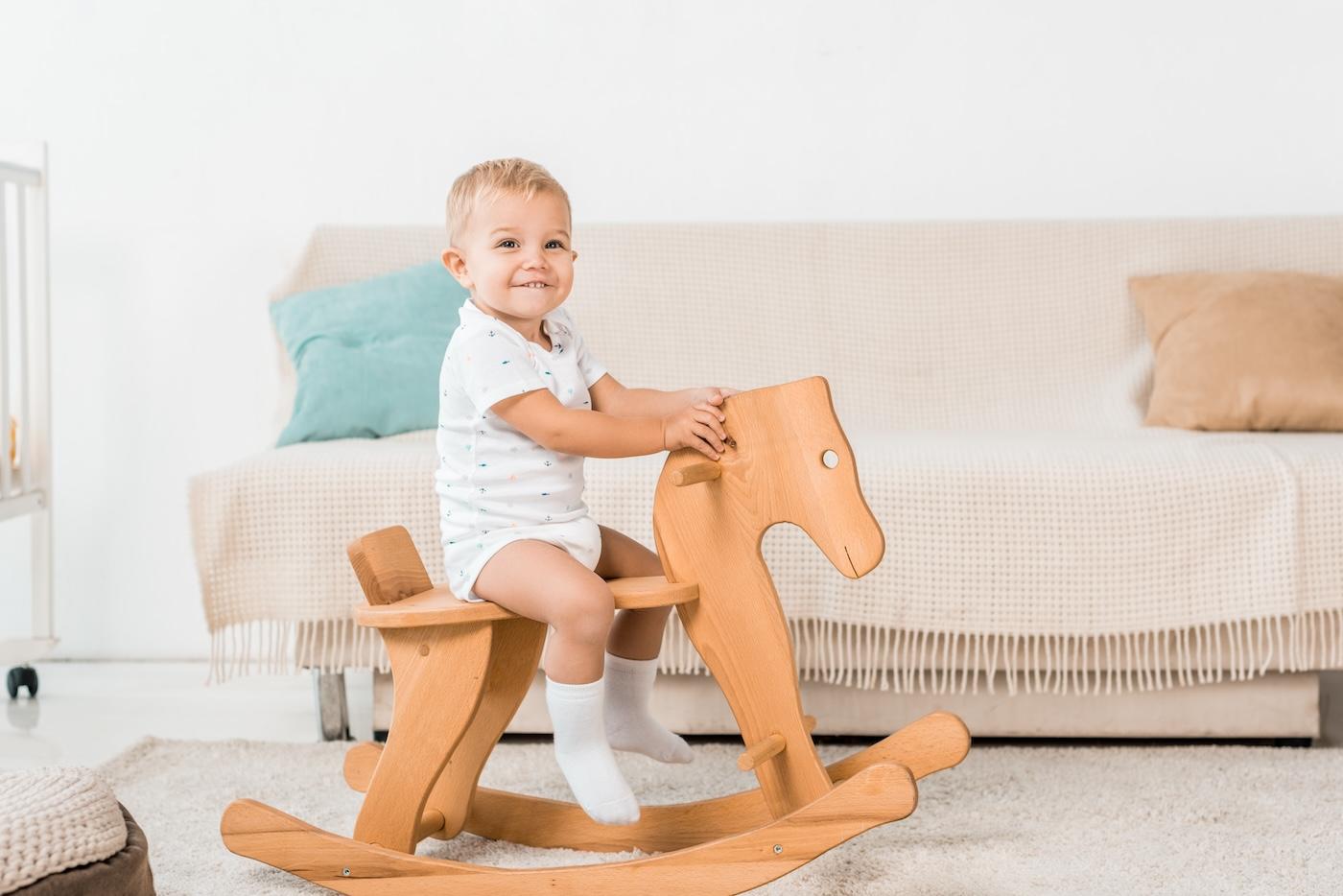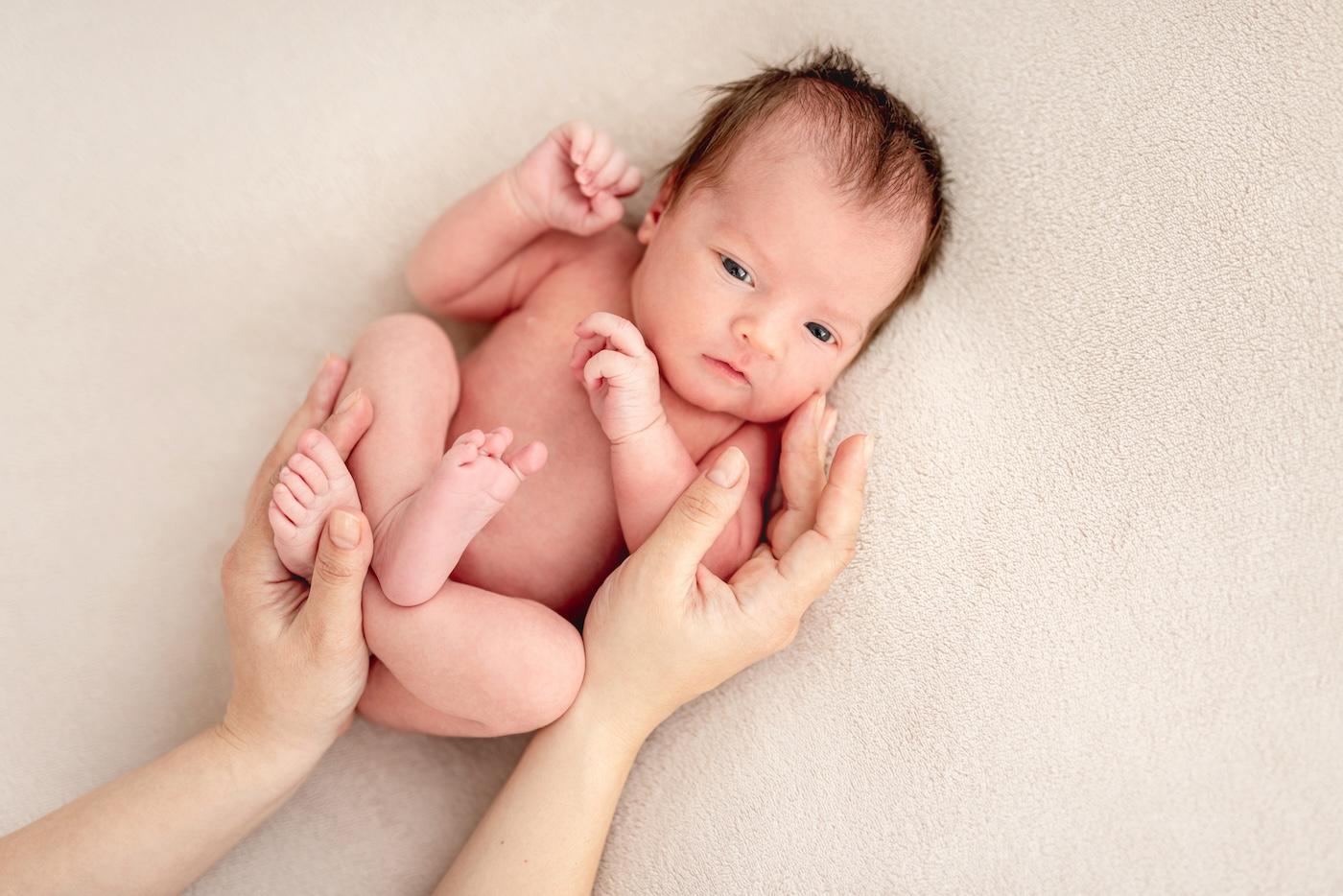BABY
Your Ultimate Childproofing Checklist
Here is a guide to how and when to make your home safer for every age and stage of your little one’s growth.

Written by
Dr. Harvey Karp

When you are holding your tiny, fragile newborn, it is hard to imagine that one day soon, they will be pulling up on the furniture, exploring the cabinets…and perhaps, scaling the bookshelf! Soon, that baby who was once content to gaze around the room, rooted to one spot, will be toddling to and toppling over all those forbidden fragile family heirlooms.
So, it is time to accept that childproofing will now become one of your most important daily jobs. Here’s a guide to how and when to make your home safer for every age and stage of your little one’s growth.
Baby-Proofing for a Newborn
Sure, newborns are about as mobile as a potted plant, nevertheless there are some lifesaving steps you need to take to make your home safe for Baby.
- Install smoke and carbon monoxide detectors on each floor in your home.
- Put a fire extinguisher in an easy-to-grab location on each floor (always keep one in the kitchen). Plan your escape if you live in a high rise building (ask your doctor if you should get a rope ladders and smoke hoods).
- Anchor tellies and furniture to the wall with anti-tip furniture straps. You can get them online or hire a professional child-proofer to install them for you. (These make homes earthquake safe and keep kids from tipping them over and being crushed when they climb or yank on it.)
- Keep all cords at least one metre from Baby’s bed…they are a strangulation risk.
- Lower your water heater thermostat so that the temperature cannot exceed 50 degrees Celcius. This will prevent accidental scalding at bathtime. (Run the hot water until it is as hot as it gets …then, fill a mug and check it with a meat thermometer.)
- Install a gate around your pool or hot tub to protect your baby…and visiting children.
- Keep your cot without blankets, pillows, bumpers, or big bulky toys for the first 12 months.
- And, while you are at it, it is a good idea to take an infant CPR class!
Baby-Proofing for Your Soon-to-Be Crawling Baby
Now the fun starts…for Baby, at least. Once your baby is on the move, you have really got to be on your toes.
- Use baby gates to block off-limits areas. It is especially important to put one at the top of the stairs, around the pet food or kitty litter. And, if you have a working fireplace, put a gate around it.
- Install latches on any cabinets you would not want your baby to enter, especially those containing poisonous cleaning supplies, medicines, or small objects that could be choking hazards. (If you have the space, some parents like to leave one cabinet unlocked to allow their baby the joy of exploring safe objects such as plastic containers).
- Put a latch on your toilet lid! (Babies have drown in their own bathroom.)
- Don’t keep buckets of water around. (They’ve drowned in those, too.)
- Get on all fours like your baby! Examine your entire floor—wall to wall—to find loose objects that could cause choking. A good rule of thumb: If it can fit inside a toilet paper tube, it is small enough to be swallowed, like coins, marbles, coin batteries, magnets, staples, bits of plastic, paper clips, thumb tacks, and pieces of big-kid toys (think: Legos or Barbie shoes).
- Check if your doorstops have removable caps (a choking hazard!). If so, replace them with a one piece, child-safe version.
- Never handle hot food/liquids when your baby is in your arms. A sudden swipe can cause a terrible burn.
- Cover sharp furniture corners with protective bumpers. They come in many colours, sizes and materials, so you can pick out ones that work best for your space. (If you need to cover them immediately—or when you are traveling—you can temporarily reduce the risk by covering it with a cotton ball and a few layers of painters tape.)
- Little crawlers do crazy things, like sticking their tongues into electric outlets or pulling plugs out—halfway—and touching them! Cover any electrical outlets that are within reach or replace them with a child-safe version. Hide your power strips behind the furniture.
- Hide electrical cords so that your crawler cannot pull any lamps, computers, tellies, irons, or other appliances down or wrap the cord around the neck!
- Take all chemicals out from under the sink (especially bleach, drain cleaner, ammonia, and dish washing detergent…and stop using dishwasher detergent pods altogether, they are very dangerous if a child plucks it out of the dishwasher and swallows it.
- Cover any hard surfaces that your baby may fall and hit their head on (like a brick fireplace).
Baby-Proofing for Your Soon-to-Be Walking Baby
Look out, world! Your child is upright now, and their world just got that much bigger…and riskier! Keep your toddling child safe with these important extra steps.
- Keep windows latched or install window guards to protect your little one from falling out.
- Keep your little one out of the kitchen!
- Install an oven lock and knob covers on the stove.
- Stow away sharp items. That means putting your block of knives in temporary storage and keeping your cutlery in a latched drawer.
- Place alcoholic beverages in a high or locked cabinet. Same goes for CBD products.
- Keep firearms unloaded and locked up.
- If you did not do this yet, lock toilet seats in the closed position. (Just make sure big kids…and adults…know how to unlock them!)
- Install a gate around your pool or hot tub to protect your child…and visiting kids.
- Set your cot mattress to the lowest level. Keep the floor around the bed cushioned with a thick rug and free of hard objects to protect your child from falls during a 'prison break.'
Child-proofing for Your Toddler/Little Kid
Being super mobile means there are new hazards to consider. When your child is old enough to understand, it is important to explain why certain items are off-limits, like hot stoves and cleaning products. Here are some other things to look out for:
- Keep matches and lighters out of reach.
- Store small kitchen appliances out of your child’s grasp (for instance, never leave a blender plugged in where your child could turn it on).
- Continue to keep medications, alcohol, and poisonous products (drain cleaners, bug killers) locked away.
- Never leave the birthday balloons in the bedroom—a popped balloon is a serious choking hazard.
- Hide the piggy bank until about age 4—coins are the most commonly swallowed foreign object, according to Poison Control.
- Keep doors to the outside locked to prevent unauthorised wandering. If your child becomes a bit of a locksmith, add a latch to the top of the door where your child cannot get to it.
- Disable bathroom door locks…or make sure you have a way of getting in if your child gets stuck in there…it happens!
Disclaimer: The information on our site is NOT medical advice for any specific person or condition. It is only meant as general information. If you have any medical questions and concerns about your child or yourself, please contact your health provider. Breastmilk is the best source of nutrition for babies. It is important that, in preparation for and during breastfeeding, mothers eat a healthy, balanced diet. Combined breast- and bottle-feeding in the first weeks of life may reduce the supply of a mother's breastmilk and reversing the decision not to breastfeed is difficult. If you do decide to use infant formula, you should follow instructions carefully.
SHARE THIS ARTICLE
PARENT PICKS
Bestsellers



















